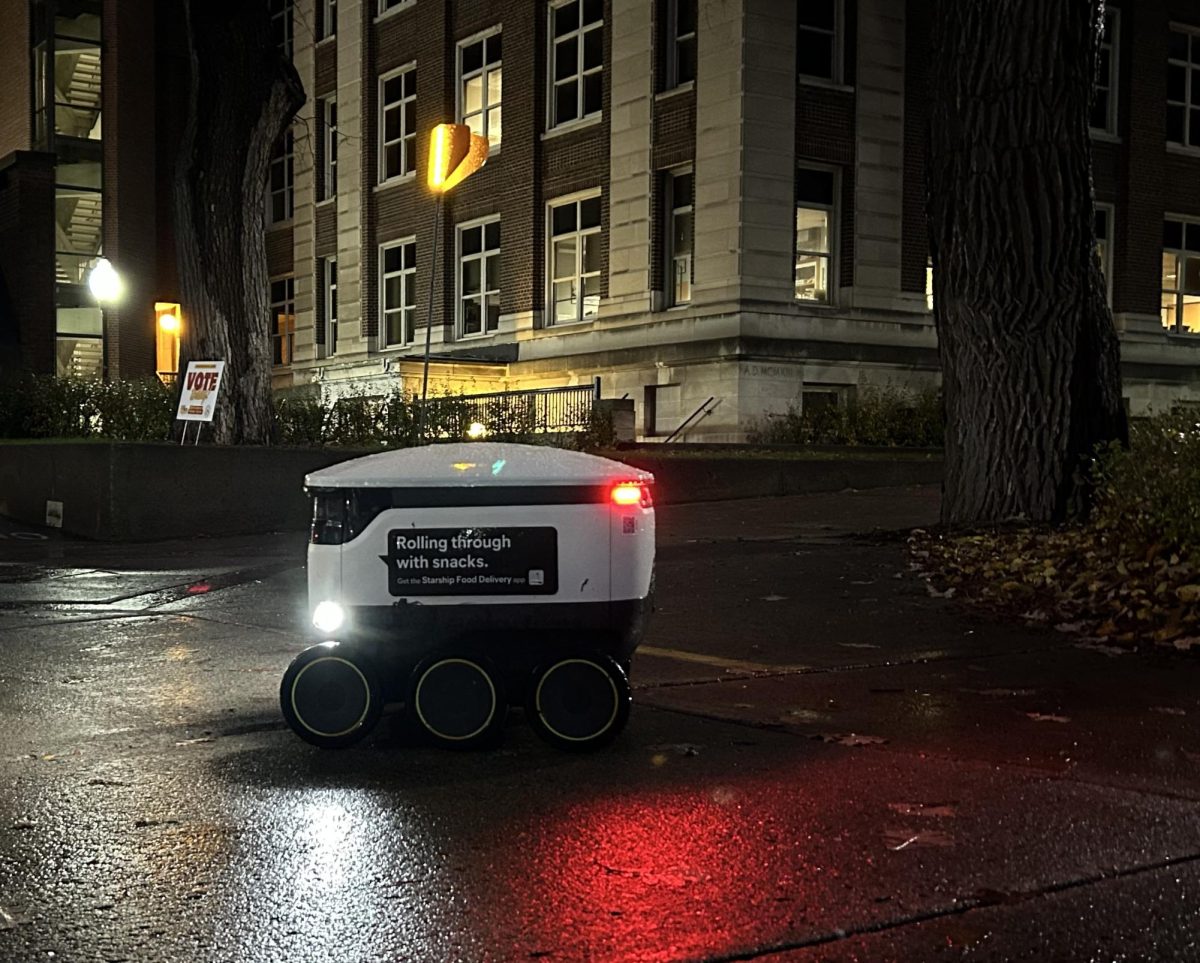Last Tuesday afternoon in TCF Bank Stadium, the visiting team’s locker room was strewn with 14 bags, mostly filled with clothes, tennis balls and dog food.
University of Minnesota Police Department Officer Allan Cunningham ran between the bags with his black lab, Gator, yelling “check” at each piece of luggage. When Gator found the bag filled with plastic explosive C-4, he sat.
“Research and development for a lot of companies has tried to find something better than the dog to search out explosives,” said UMPD Sgt. Ryan Rivers. “They haven’t come up with nothing yet.”
The University of Minnesota Police Department’s Canine Unit trains about once a week. Since 9/11, the unit is deployed for every large-scale event on campus, from Spring Jam to Gopher football games.
Each football game is swept by five dogs, with two coming from the Minneapolis Police Department’s seven-dog unit. For Super Bowl LII, agencies around the country brought 140 bomb-sniffing canines to the city.
As pyrotechnics become a greater part of large events, like Beyonce’s 2016 concert at TCF Bank Stadium, the dogs are sometimes thrown off by the smells of explosives. To simulate real-life scenarios, the unit tries to train in different locations and welcomes various distractions.
The unit has three dogs to three handlers: Gator with Cunningham, Doc with Rivers, and Rio with UMPD Officer Lara Bauer. The pooches go home with their officer each day and will stay with them when they retire.
“My dog, he knows that this is when he’s working and when we’re at home. So when we’re at home, he knows to just relax,” Cunningham said.
The pups are motivated by different rewards while training, Bauer said. Gator and Rio are given a toy. But Doc, a black lab, is rewarded with food, so Rivers practices skills with his dog before every meal at home.
Bauer’s dog, Rio, a German Shepherd, is “dual purpose” — the only UMPD pup trained for more than explosives identification. He is also trained in tracking and apprehending suspects, which requires thousands of hours of training per year to maintain United States Police Canine Association standards.
“These dogs, people think they’re aggressive, but they’re really not,” Rivers said. “This is a game that we trained them on.”
Rio is getting close to retirement age, but shows no signs of slowing down, Rivers said. Replacing a dog like Rio could be a $10,000 venture, Rivers said.
“Anytime you visit a concert here, anytime you go to a football game, the building’s been checked,” Rivers said. “Crime[s], and some of the serious ones, have crept closer and closer to campus. That dog could be a game changer on certain things.”















